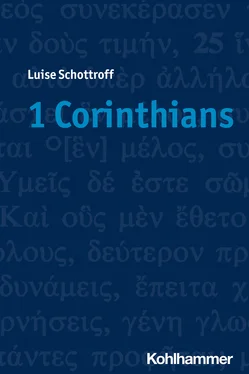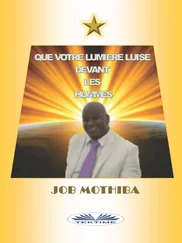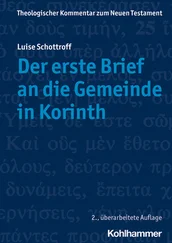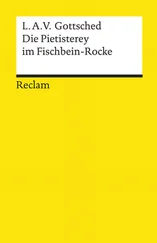In 1:4–9 Paul describes his prayers of thanksgiving, using a multi-clause sentence (from 1:4–8) to thank God for the riches the congregation in Corinth possesses: the riches consist in charismata/abilities or gifts conveyed by God. The word charisma occurs in 1:7; in 1:5 he expressly mentions speech ( logos ) and knowledge ( gnōsis ) as examples of these abilities. He will discuss them in greater detail in 12:4–11. The power of God’s Spirit effects these abilities. This section gives a positive and unqualified appreciation of the congregation, although in chapters 12–14 Paul also criticizes the way the divine gifts are employed. He there criticizes attempts to build hierarchies with their help. There are questions about whether 1:4–9 has the goal of getting the recipients to receive the letter favorably. 41And yet, the section is more likely concerned with naming the foundations of the congregation, and, therewith, of the new life of all the participants: God’s favor (1:4, 9), fellowship with the Messiah (1:4, 9, 6) and the expectation of God’s just judgment for the entire world (1:8).
1:4 God’s favor( charis ) is experienced in the community of the Messiah and in the abilities effected by the Spirit’s power. The congregation consists primarily of those who work with their hands (see on 1:26). Almost all were likely illiterate or recipients of a modest education. 42When Paul emphasizes here the Spirit-worked abilities of speech and knowledge, it becomes clear how fully the messianic fellowship endows those who participate in it.
1:5They gain the ability for free and open speech ( logos ), both in the congregation and in society (14:24). Chapter 14 shows how significant speaking openly in the congregation is. The letter consistently shows that experience and competence in the interpretation of Scripture can be presupposed among the addressees. There is nothing to indicate that Paul wants to restrict these abilities and competencies to men (14:34), and already on that basis 14:34—which forbids women to speak publicly—is not to be regarded as Paul’s point of view (see on 14:34). The gift of logos encompasses speech and understanding, an understanding that in society is seen as an exclusive ability of the society’s elite, since they are the ones able to plan, shape and rule. Knowledge ( gnōsis ) doesn’t refer to intellectual abilities alone but also the abilities brought about by the Spirit’s power: to receive and impart insights that come from divine revelation.
1:6»You are bearing witness to the Messiah and demonstrating growing strength therein.« The translation of the NRSV reads, »just as the testimony of Christ has been strengthened among you.« With this wording, it remains an open question who is doing the preaching and giving the testimony. There is consensus in the interpretive tradition that the answer is Paul. Along with that, the meaning of the word ebebaiōthē /(the testimony is) confirmed or strengthened, is often construed to be a divine passive. 43Through this interpretation the congregation is seen exclusively as the object of the action. But in 1:5 the issue is their abilities and activities. In Greek, 1:6 is a subordinate clause that begins with kathōs , which here probably means »just as.« The content of this subordinate clause wants to make clear that being endowed with spiritual abilities is a process. This involves testimony ( martyrion ) that liberation from bondage to domination and destruction occurs through the Messiah Jesus. What is the content of logos and gnōsis ? It is the testimony to the Messiah Jesus, which the congregation is rendering publicly, which involves courage and strength that are brought about by God (see the translation above, which leaves open understanding ebebaiōthē as a divine passive here.
Concepts of Time and Eschatology
The concepts of time in the ancient world and in the Bible must be understood from their context. They cannot without further ado be identified with modern concepts of time. To begin with, an important difference arises from the fact that today time is normally understood as objectively measurable and as linear—from a no longer identifiable beginning into an unending future, a time that keeps on going just that way. In the ancient world there were no clocks like ours that keep on running uniformly day and night. They are a presupposition for today’s concepts of time.
In the Pauline letters the biblical concepts of time are presupposed: time is shaped and divided by what God does. Creation and exodus are divine activities that belong in the past, about which the people of the present can learn. The future is also determined by its relationship to God: it is the »future« ( ta mellonta , 3:22), it brings »the end«/ telos (1:8; 10:11; 15:24). And yet with the end, an end of time is not expected but the end of humanity’s suffering. In 15:24 the end is described: God deprives every authority, rule and might of their power. This is also what is thought about in 10:11. The present-day congregation is the fellowship of those »on whom the end of the ages has come,« that is, the end of the »ages of this world.« This phrase does not denote a time period but a sphere of influence, in which ruling powers act in the interest of a force hostile to life (2:7, 8; 1:20; 3:18). This »end« is longed for; it signifies the end of violence and suffering and thus the time in which »God is all in all« (15:28). The German word Ewigkeit (»eternity«) attempts to reproduce this concept of a comprehensive peace with God. This disempowerment of forces hostile to life has begun with the resurrection of the Messiah. Therefore, their destruction is already under way (2:7), and the congregation already experiences their »end« (10:11; cf. 3:22). Thus, Paul can also say, »The present time/ kairos is pressing in on us, things are out of joint« (7:29). After all, God’s future is near, and it already now changes how the believers live (cf. Rom 13:11). The present is the time of our relationship to God and to divine action in present, past and future. God’s future activity includes the just judgment of all humanity and the consummation (15:24). Therefore, believers are those who wait (1:7). They await the final revelation, the coming of the Messiah (1:7). The resurrection of Christ is the beginning of salvation; the Messiah is present, and he is the one to come. »As long as ideological and dogmatic concepts sealed off from experience do not come from these statements, it remains natural to have an interweaving of what is expected and what is present.« 44In the present believers await the consummation (15:24), but they also await God’s just judgment (on this see 3:13–17; 4:5 and more often). The »day« of judgment (1:8; 3:13; 5:5) takes up the Old Testament concept of the day of Adonai. Paul also calls it the day of the deliverer, Jesus Christ (1:8; see also 5:5 in parts of the manuscript tradition). In this context it remains an open question whether Paul thinks of the Messiah as the judge at the end time. 45
There are primarily two patterns of interpretation that have characterized the perception of this concept of time since about 1970: 1. The concept of near eschatology/delay of the parousia; 2. The concept of a non-dualistic eschatology. The first concept was predominant from the end of the 19 thcentury until the closing days of the 20 th. It interpreted the eschatology of Jesus and Paul as a near-expectation that awaited the coming of the reign of God in years rather than in decades. The »nearness« of God’s reign is thus construed in linear time. Since the reign of God did not come, the disappointment about the near-expectation led believers to adapt themselves to being in the world for the long haul. 46Through the concept of a reign of God at the end of time and history, there arose a dualism of history and eternity, this side and the other side.
Читать дальше












